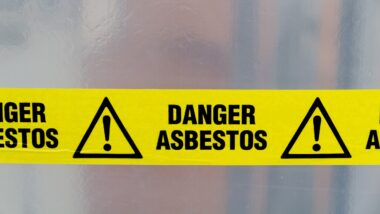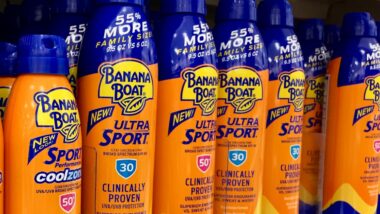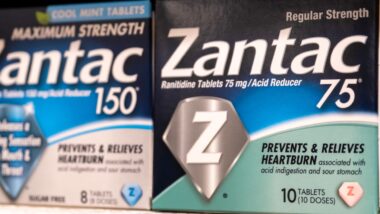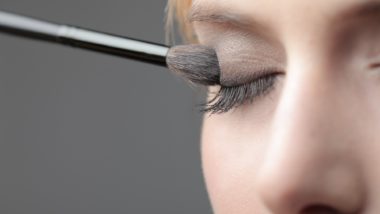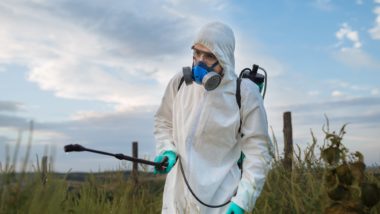Top Class Actions’s website and social media posts use affiliate links. If you make a purchase using such links, we may receive a commission, but it will not result in any additional charges to you. Please review our Affiliate Link Disclosure for more information.

In turn, the FDA’s reported discovery of asbestos in talc has sparked a debate among lawmakers and talc industry members. Asbestos, like talc, is a naturally-mined mineral. The two are often found near one another, and critics reportedly worry that asbestos could contaminate mined talc, which is used in a range of cosmetic and personal care products. This sparks concern because asbestos is known to cause cancer, so the possible presence of asbestos in talc may throw the safety of talc into question.
However, talc industry members maintain that talc is safe, and criticize the FDA’s recent recommendations for talc testing.
The FDA has published new safety recommendations for talc testing, and Reuters reports that the organization’s position is more supportive of the belief that talc contaminated with asbestos could be dangerous.
If turned into law, the FDA’s new recommendations for talc testing could mean stricter oversight for the talc industry. According to Reuters, the FDA has not required manufacturers to test for the presence of asbestos in talc in the past, though the two minerals are often found together.
In contrast, the FDA now has stated that certain particles that the talc industry does not consider to be asbestos could actually be harmful. Asbestos has long, “spear-shaped” fibers that can enter the lungs, and, according to the FDA, so do other similar minerals. Allegedly, asbestos and other similarly-shaped minerals can cause cancer, and should therefore be investigated.
A report published by the FDA suggested that the particles that are similar to asbestos but not categorized as such by the talc industry have “similar pathological outcomes” and could be harmful. However, Reuters notes that the FDA has not announced a timeline on which these new findings and recommendations about testing might lead to new requirements.
Why is This New Testing Significant?
Reuters explains that this development is significant because previous testing measures did not find a range of hazardous, elongated particles.
However, industry members have criticized this proposed new testing requirement, saying that the new methods will not be effective, and the requirement is not scientifically supported. Mark Pollack, Chief Operating Officer for the Personal Care Products Council, takes issue with the assertion that long fibers other than asbestos could be harmful and therefore should be subjected to testing.
He said that counting for all long particles, and not just asbestos “would provide misleading reports, suggesting the presence of asbestos when none exists.” He goes on to argue that “the key to effective testing is identification of asbestos, not harmless minerals.”
Reuters explains that in the 1970s, the U.S. Occupational Health and Safety Administration and the Environmental Protection Agency limited asbestos exposure because it was well-established that asbestos exposure could cause cancer and other health problems. The National Cancer Institute explains how exposure to asbestos can lead to cancer.
However, during the same period, the FDA reportedly downplayed worries that asbestos could contaminate talc and the asbestos could, in turn, show up in talc-based cosmetic and personal care products.
Do YOU have a legal claim? Fill out the form on this page now for a free, immediate, and confidential case evaluation. The attorneys who work with Top Class Actions will contact you if you qualify to let you know if an individual lawsuit or class action lawsuit is best for you. [In general, baby powder cancer lawsuits are filed individually by each plaintiff and are not class actions.] Hurry — statutes of limitations may apply.
ATTORNEY ADVERTISING
Top Class Actions is a Proud Member of the American Bar Association
LEGAL INFORMATION IS NOT LEGAL ADVICE
Top Class Actions Legal Statement
©2008 – 2024 Top Class Actions® LLC
Various Trademarks held by their respective owners
This website is not intended for viewing or usage by European Union citizens.
Get Help – It’s Free
Join a Free Baby Powder Cancer Class Action Lawsuit Investigation
If you used Johnson’s Baby Powder, Shower to Shower, or another talcum powder product and were diagnosed with ovarian cancer, you may have a legal claim. Family members of loved ones who died of ovarian cancer can also join. Submit your information now for a free case evaluation.
An attorney will contact you if you qualify to discuss the details of your potential case at no charge to you.
PLEASE NOTE: If you want to participate in this investigation, it is imperative that you reply to the law firm if they call or email you. Failing to do so may result in you not getting signed up as a client or getting you dropped as a client.

